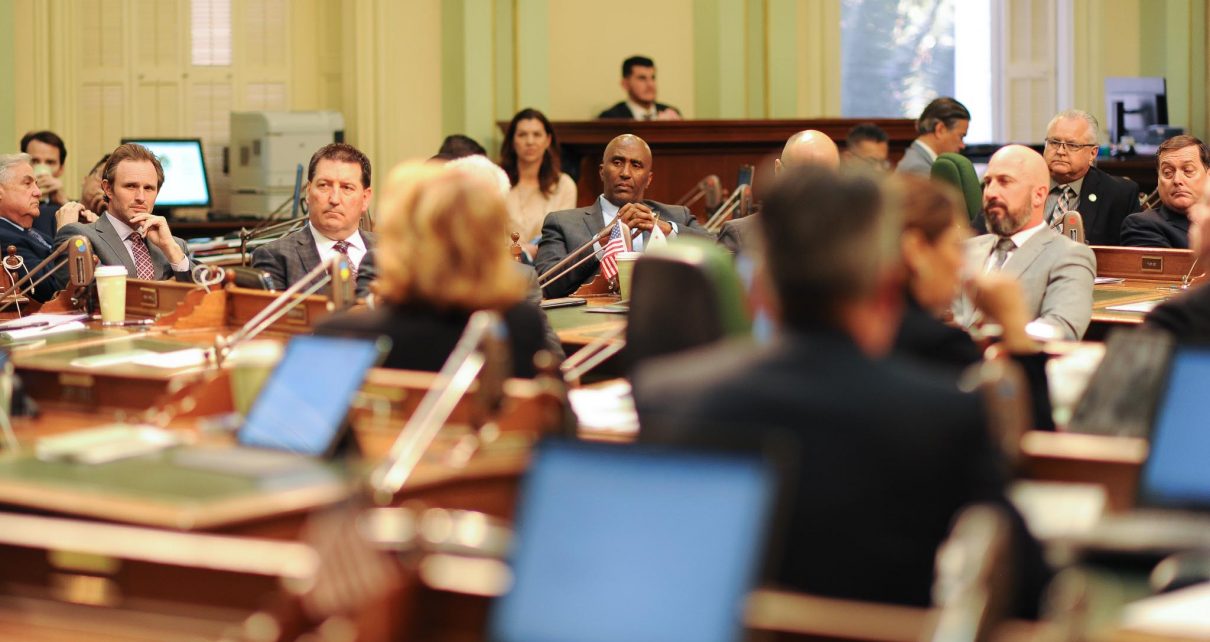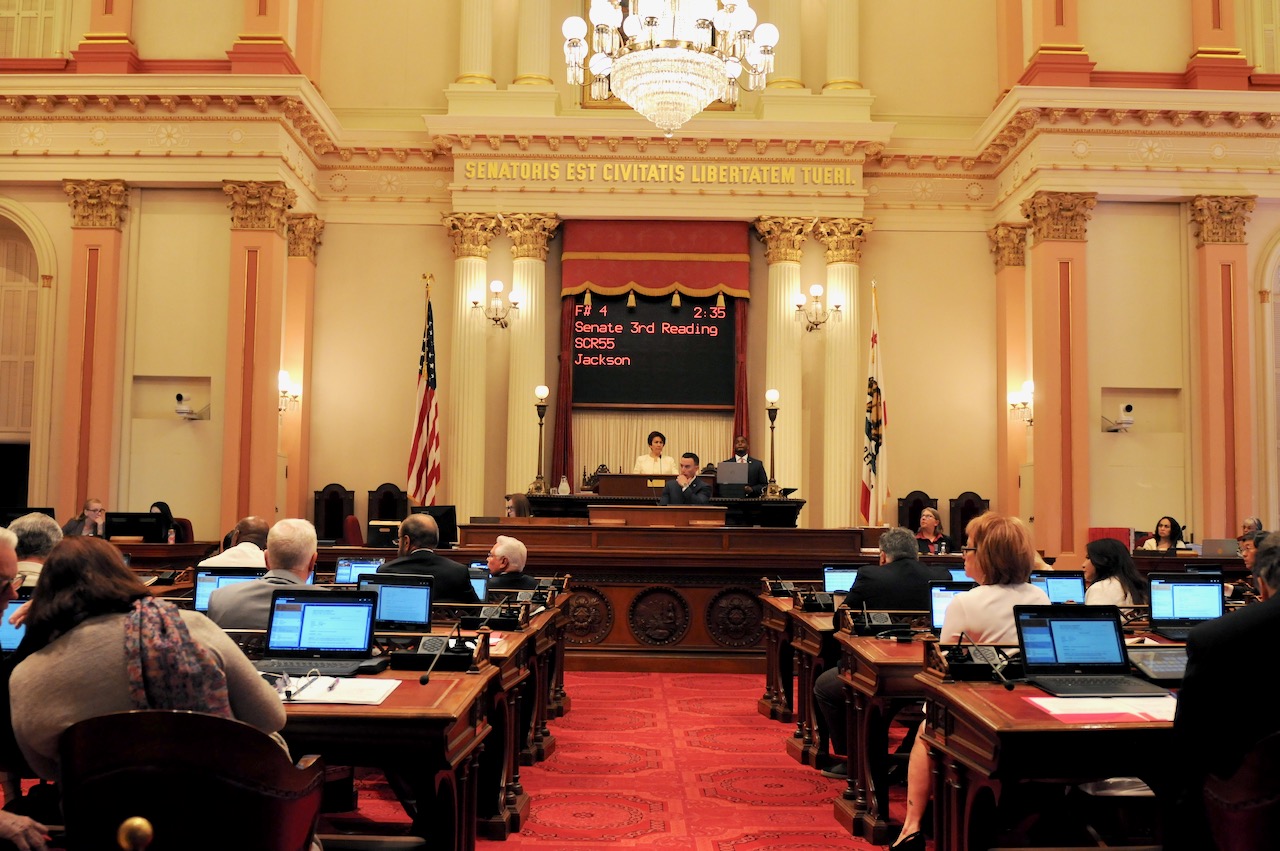
California State Assembly. (Photo: Kevin Sanders for California Globe)
Frequently Asked Questions About Legislative Measures on Consent
Can a legislator object to a measure on the consent calendar?
By Chris Micheli, January 22, 2024 2:30 am
What are “uncontested bills”? Joint Rule 22.1 deals with “Consent Calendar: Uncontested Bills” and provides that each standing committee may report an uncontested bill out of committee with the recommendation that it be placed on the Consent Calendar.
What are the requirements for being an uncontested bill? Three requirements must be met: It passed committee by unanimous vote; it has no opposition expressed at the committee hearing; and, it has been requested by the author to be placed on consent.
What is the “consent calendar”? Joint Rule 22.2 deals with “Consent Calendar” and provides that, following its second reading and the adoption of any committee amendments, any bill certified by the committee chairperson as an uncontested bill is placed on the Consent Calendar.
Can a legislator object to a measure on the consent calendar? Yes, any legislator can object to a bill being on the Consent Calendar.
When are consent calendar bills considered? They may be considered on the second legislative day following the day the bill was placed on the Consent Calendar. As a general matter, the Consent Calendar is considered as the last order of business on the Daily File.
Are consent calendar bills debated? No, a bill on the Consent Calendar is not debatable.
What is “special consent”? The Senate also utilizes a “Special Consent Calendar.” The requirement for a bill to be on the Senate’s Special Consent Calendar is that there is no opposition and that both party caucuses have a “support recommendation” on the bill.
When is the Special Consent Calendar voted upon? It is designated with a date upon which the measures will be voted on by the Senate.
What is “batching”? Batching means putting together a group of bills for consideration in a single motion, or vote. The Assembly reviews the recommendations of the Democratic and Republican Caucuses and, where appropriate, “batches” together a group of bills and takes a single vote on that batch of bills.
- Stay of Appeals - March 4, 2026
- Liability for a Deceased Spouse’s Debt - March 4, 2026
- Wildlife Management Areas - March 3, 2026




